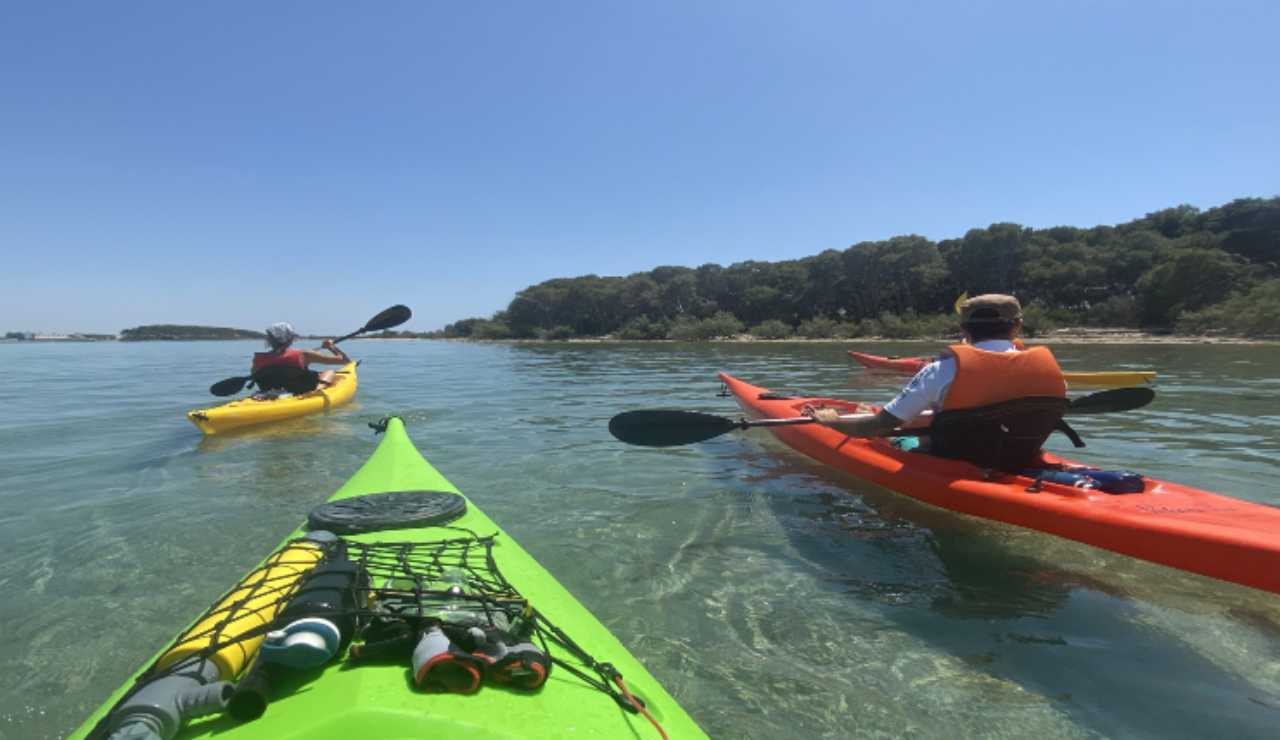A gem folded inside another gem: It’s a village Italian Tour Club, managed by the experts TH Resorts, is on La Maddalena, the natural park island in northern Sardinia, off the Costa Smeralda. Immersed in the gorgeous GeoMarino National Park and surrounded by more than 5 hectares of spontaneous Mediterranean scrub, the village of La Maddalena overlooks one of the island’s most beautiful points, Punta Cannone: a mosaic of Mediterranean scrub, turquoise sea, smooth granite stones and beaches. .
150 meters from the central body of the village, along a suggestive panoramic staircase overlooking Cala di Stanio Torto, here is the equipped private sandy beach. The village guarantees distances, relaxation, connection to nature and maximum sustainability even in the environments: ceiling fans instead of air conditioning, water recycling, environmentally friendly materials. There is also a marine biologist available. The management of the resort is entrusted to Fabrizio Rizza, Director of TH.
Director, is the season promising?
Absolutely. We reopen on June 14 and will end on September 19, with reservations already occupying nearly all of our 70 bungalows and cabins, all in touch with nature and the surrounding environment. For the first time, we have a new cruise point within the structure, which manages all sea and land experiences for our guests, with a range of offerings developed in collaboration with new company NausDream (See below, ed). We also studied weeks focusing on geography and mountaineering.
This summer, due to the significant improvement in the situation, have health precautions been relaxed?
up to a certain point. we have Re-introduce buffets, but our employees “help” them. Tables are no longer allocated for the duration of the stay, but each table can only accommodate one family. Environments are always sterilized, gels are everywhere, and staff are always attentive to provisions. Then there are the activities. The winds that often blow over the island are ideal for sailing and windsurfing. Then beach volleyball, kayaking, table tennis, bowls, nature walks, biking, sailing or motor boat trips, guided tours with transportation.
your location
Territory and History
The islands of the Maddalena Archipelago, which in prehistoric times were almost completely connected with each other and Sardinia, were routes of communication and trade: the Monte Arci obsidian and the Anglona flint, directed to the continental coasts, passed through here. In the Middle Ages, some monks chose its complete seclusion to live here in small communities associated with Santa Maria Maggiore de Bonifacio. In the second half of the seventeenth century, some Corsican shepherds began to frequent the islands and, unlike the Gallura islands, were familiar with the sea, which they plowed constantly to move from one island to another, to trade with the inhabitants of the opposite. coast, to return to Bonifacio in the summer months: it was not difficult for them to become sailors, as they joined the Reggia Marina Sarda. And when revolutionary France attacked Sardinia in 1793, it found here a strong defense formed by the new subjects. Napoleon was part of the expedition as an artillery officer, and from Santo Stefano the city of La Maddalena was easily conquered on February 23 and 24 of that year, but due to the rebellion of the French crews and above all, a hard defense of Maddalenini, he had to abandon the project of conquest.
Here, too, we recall the history of Garibaldi, who decided to spend his exile and his last days there. In the small port of Cala Gavita stands a pole with his doll that lived the last 26 years in Cabrera, joined by the Maddalena by Paso della Moneta and is famous for the collection of the Garibaldi Museum. The island also attracted the attention of Admiral Nelson, among others.
More recently, in 1972, thanks to bilateral agreements between Italy and the USA, the last Italian state awarded a landing on the eastern coast of Santo Stefano: here, the factory ships, alternating over time, received American submarines in service in the Mediterranean, While on the ground were created “support” administrative offices, housing for families, and schools. The Americans left in 2008.
lands to see
La Maddalena (about 10 thousand inhabitants, province of Sassari) gives its name to the archipelago, in which it is the largest island, and to the national park, which is its administrative center. It is the largest of the 60 islands and islets that make up the archipelago in northeastern Sardinia, and is the only one inhabited within the national park with its historic town, a former Italian and American military base. The road runs along its entire circumference: 45 kilometers of scenic spots. Granite and porphyry define jagged stretches, inlets, bays, and beaches, while the hinterland consists of gentle hills. La Maddalena has been the naval base for years, and the Nino Lamboglia Maritime Museum has seen it. Its inhabited center is the only one in the archipelago: La Maddalena, founded in 1770, overlooks Palau, which is a twenty-minute ferry ride away. Eighteenth-century mansions overlook the cobbled alleys in the centre, as do the town hall and the parish church of Santa Maria Maddalena. You can admire the suggestive landscapes along the road to Spalmatore, a gorgeous bay. The gorge of Cala Francese lies three kilometers from the center: between the scrub of the Mediterranean and the granite quarry, paths lead to the discovery of silent coves and dreamy beaches. In the southern part, after the Badul waterfront, you reach the Eagle’s Nest, near the military fortress. Not far away, another marvel, Punta Tigi. To the north beyond the isthmus dello Strangolato, here there are coves of white sand dunes surrounded by wind-formed rocks and beaches: Basa Trinita, Cala Lunga and Monte Darina (from Sardina Turismo).
From Maddalena you can set out to discover the other islands of the park: Santo Stefano to the south, Budelli and the famous Rosa Beach, Razzoli, Santa Maria and Spargi to the north. But it is an area that hides many true natural treasures, such as Cala Coticcio, Cala Francese or Budelli’s colorful coral beach. There are also Orange Flag villages in Tci, such as Tempio Pausania and Aggius.
Territory and experiences TH
Garibaldi, champion of two worlds: Accompanied by a guide, on the coast up to Cabrera, to the Monument to the Hero of the Worlds, a multimedia museum. Cabrera and Santo Stefano: On board the gozzo towards Caprera and Santo Stefano, with its charming beaches, Cala Coticcio, Cala Napoletana, Cala Serena and Cala del Pesce. green train: From Palau to discover the hinterland, all the way to Aggius with the Museum of Banditry, then to Luras, with the Accabbadora Museum, among legends and lore. French Quarry: With a guide to the site where one of the world’s finest granite was mined. Visit old machines and old locomotives. The archipelago seen from an antique sailing ship: On a sailing boat to Spargi and Cala Corsara, then to Budelli and its pink beach. Cross the Asinelli Pass and reach the island of Santa Maria, then to Cala Soraya. Sardinia excursions and entrees: From Poggio Zonza to Monte Tejalone, for Sardinian Vermentino accompanied by local produce. orange flags: With a guide to discover Calangianus and its cork museum, then Tempio Pausania (orange flag) with San Pietro Cathedral, and finally Aggius (also orange flag). The legend of Garibaldi: With a guide to Cabrera, the Museum, the White House and then the statue of the hero in Maddalena. The Sweet Life of Costa Smeralda: Visit the Archaeological Park of Arzachena and La Prisgiona nuraghe. Then a panoramic tour of Costa Smeralda and Porto Cervo.
– – – –
We need your input to continue providing you with independent, high-quality information.
support us Donate now by clicking here
© Reproduction reserved

“Introvert. Avid gamer. Wannabe beer advocate. Subtly charming zombie junkie. Social media trailblazer. Web scholar.”





